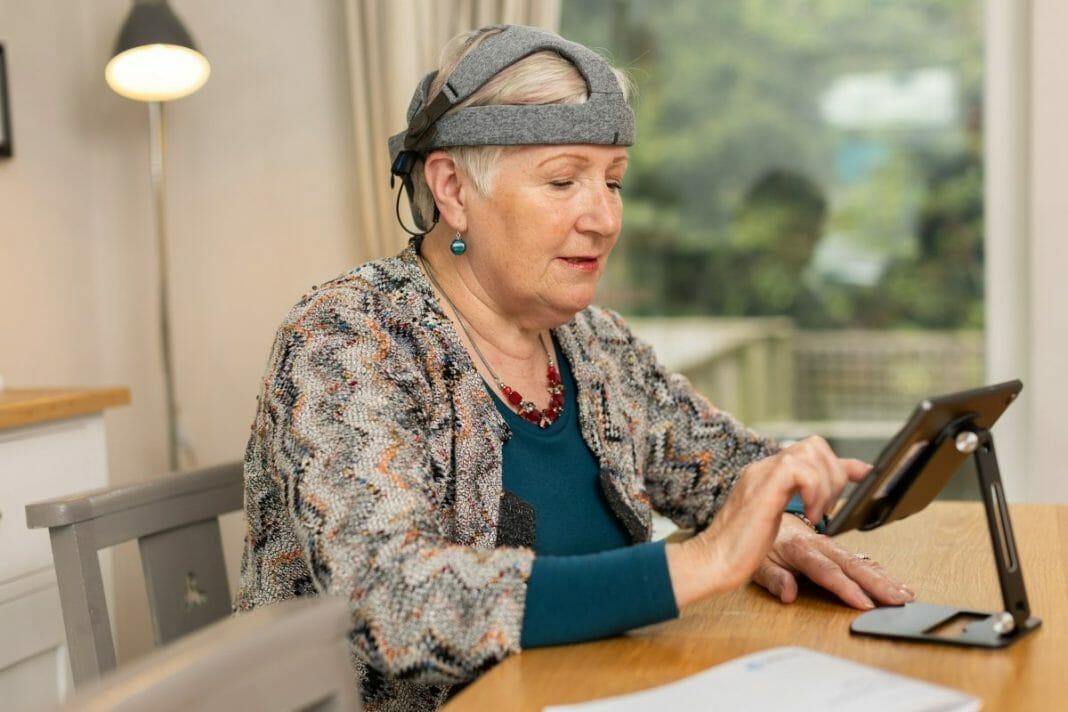Cumulus Neuroscience (Cumulus; The Company), a global digital health company focused on advancing neuroscience clinical trials and patient care through improved data, today announced that its novel, award-winning dry-sensor EEG headset, has been granted 510(k) clearance from the United States Food and Drug Administration (FDA). This represents the second medical device clearance for the headset, which previously received the UK Conformity Assessed (UKCA) mark in the United Kingdom.
Designed for self-directed use in a patient’s home or a healthcare facility, the Cumulus EEG device is now FDA-cleared for use by adult and adolescent patients for the remote acquisition, display, and storage of electroencephalograph (EEG) data. The headset is available in four sizes, and is easily self-applied in less than five minutes with guidance from the Cumulus mobile app – eliminating the need for EEG technician or healthcare professional support. This groundbreaking technology provides a means to initiate clinical studies remotely with data transmitted to the Cumulus Medical Device Hub, allowing healthcare professionals to review EEG recordings in real-time.
“Receiving 510(k) clearance from the FDA marks a major milestone for Cumulus, and for our biopharma innovator partners in the US and Europe who need the ability to capture clinical-grade, EEG signals from patients while at-home, to accelerate their development programs for precision CNS medicines,” said Brian Murphy, Founder and Chief Scientific Officer, Cumulus Neuroscience. “By providing reliable data across multiple domains of brain function, from specific disease symptoms to functional neurophysiology, clinical researchers can accelerate the development of treatments for neuropsychiatric and neurodegenerative disorders – bringing hope to millions of patients and families navigating unmet needs in the CNS ecosystem.”
The company’s 510(k) clearance comes on the heels of its appointment of Tina Sampath as Chief Commercial Officer (CCO). An award-winning marketing executive with a proven track record of creating growth and profitability through data-driven, integrated, cross-channel marketing strategies, Sampath brings more than 23 years of commercial leadership experience at well-known biopharma, diagnostic and med tech companies, including Gilead Sciences (via $1.4B acquisition of CV Therapeutics 2009), Pfizer (via $14B acquisition of Medivation in 2016) and AliveCor. Sampath was also essential in the Bracco Imaging acquisition of Blue Earth Diagnostics for $450M in 2019. With new and growing biopharma collaborations underway, the establishment of offices in the Boston area at the new Cambridge Innovation Center (CIC), and now, FDA clearance for the Cumulus Platform, Sampath is charged with driving commercial growth, while overseeing strategic partnerships, marketing operations and corporate communications.
“Becoming FDA-cleared is another gratifying leap forward for Cumulus, as we work to become the preferred precision CNS drug development partner for biopharma innovators and advance the possibilities for new treatments for neuropsychological disorders,” said Aman Bhatti, MD, CEO, Cumulus Neuroscience. “A user-friendly EEG device that patients can apply themselves at home opens significant doors for decentralized clinical trials and remote patient monitoring, and with that, the possibility of improved diversity in clinical research that can lead to better data and outcomes. The fact that FDA clearance coincides with our recent design awards and Tina joining our executive team is incredibly exciting, and positions Cumulus for significant growth as we pursue our mission of accelerating precision treatments for and diagnosis of CNS disorders.”
Cumulus supports precision in CNS clinical trials for its industry partners by enabling remote monitoring of patients across multiple domains of brain function.



